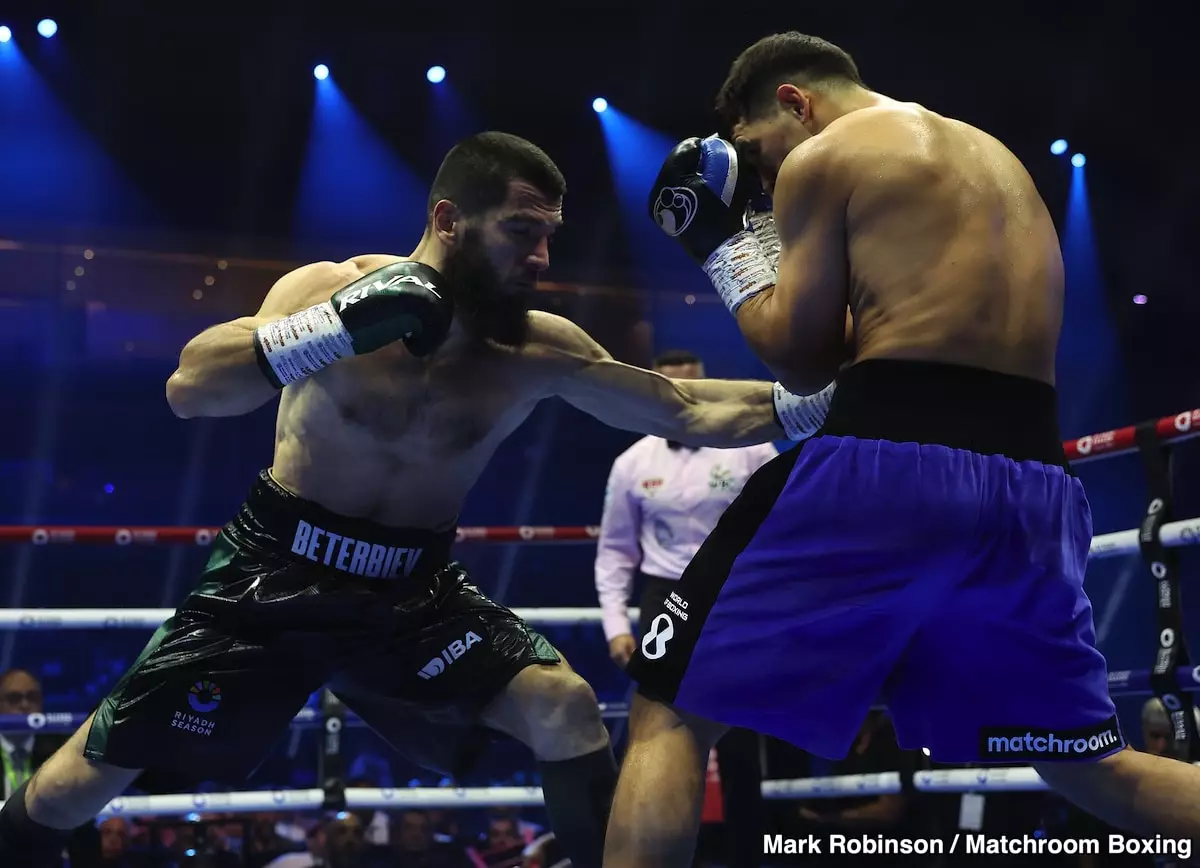In the world of professional boxing, strategies and tactics often dictate the careers of fighters, influencing matchups and outcomes. Recently, the spotlight has been on the anticipated clash between Artur Beterbiev, the undisputed light heavyweight champion, and up-and-coming contender David Benavidez. In this context, the controversial strategy of “aging out” an opponent has been discussed, raising questions about the ethics and effectiveness of such an approach in the ring. Prominent commentators, including Sergio Mora, have weighed in on this trend, emphasizing its implications for both fighters’ careers.
Aging out refers to the practice where younger fighters wait until a current champion reaches an age or physical decline that makes them more vulnerable in the ring. Mora has pointed out that this tactic has historical precedence in boxing; many fighters deliberately avoid challenging champions until they feel the champion has lost their edge or has physically deteriorated. The logic behind this method is clear: it increases the odds of victory for the challenger and ensures that they capitalize on any declining abilities of their opponent.
Artur Beterbiev, an undefeated champion with a record of 21-0 and 20 KOs, is viewed as a formidable force within the sport. Turning 40 in January, some observers note that he may soon be more beatable than he is today. Mora suggests that if Benavidez strategically waits several years to face Beterbiev, he could enjoy a more favorable matchup as Father Time potentially takes its toll on the champion.
While the tactic of aging out may yield victories, it raises ethical questions about the spirit of competition in boxing. The idea that a fighter would purposely postpone a match against a champion—potentially for years—merely to increase their chances is seen by some as a lack of sportsmanship. Critics argue that the essence of boxing lies in facing opponents regardless of age or condition, showcasing skill and determination in every fight.
The dilemma becomes even more pronounced when we consider Benavidez’s own previous decisions. He had a two-year hiatus before finally fighting David Morrell, a calculated move that some might laud for its strategic wisdom while others could see it as a lack of ambition to face the best. Boxing purists advocate for pugilists to step into the ring with whoever holds the title, asserting that true champions are those who fearlessly confront challenges, regardless of the opponent’s condition.
Adding to the intrigue is the upcoming rematch between Beterbiev and Dmitry Bivol, scheduled for February 22. The outcome of this match could significantly reshape the landscape of the light heavyweight division. Mora suggests that if Bivol wins, the narrative around Benavidez’s potential matchup with Beterbiev could change dramatically. The performance of Beterbiev against Bivol can’t be understated; it could either reinforce his intimidating legacy or reveal vulnerabilities that fighters like Benavidez may exploit.
Moreover, Mora insists that Beterbiev remains one of the most dangerous fighters in the sport today. He believes that Benavidez would not simply face a champion should he choose to fight Beterbiev soon; rather, he would confront one of the hardest-hitting and most skilled boxers in the ring. This assertion emphasizes the skills required to overcome a powerhouse like Beterbiev—not simply waiting for age to weaken him.
Ultimately, the debate surrounding the concept of aging out reflects broader themes in sportsmanship, strategy, and the ethics of competition. While waiting for a challenger to lose their edge may seem pragmatic, it also risks distorting the essence of the sport where battling the best is an inherent value. As boxing evolves, the conversation around how fighters manage their careers will remain pertinent. The upcoming matches, particularly involving Beterbiev and Benavidez, will not only determine titles but also how we view the integrity of competition within the ring. The fine line between strategic patience and opportunistic avoidance will forever be an intriguing aspect of boxing culture.

